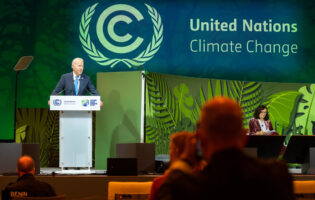Facing New Realities: Europe’s Future Role in the IMF

Paul Maeser
Federation of German Industries (BDI)
Paul P. Maeser is Senior Manager at the BDI (Federation of German Industries), covering European general affairs.
Previously, Paul was Senior Consultant with EY's Financial Services Organization and capital markets expert with Deutsche Bank in Berlin, Frankfurt, and Amsterdam. In 2011-12, he served as an APSA German Marshall Fund Congressional Fellow in the U.S. House Committee on Financial Services. He holds a B.A. in Business Administration from the Berlin School of Economics and Law and an M.A. in International Trade in Investment Policy from The George Washington University.
Paul P. Maeser is a APSA Congressional Fellow for the German Marshall Fund of the United States. He is with the Democrats in the House Committee on Financial Services. Prior, he worked as an expert on capital markets for Deutsche Bank in Germany and in the Netherlands.
During their 2011 summit in Cannes, G-20 leaders agreed that the IMF should play[1] a crucial role in the new international financial architecture. With Europe in trouble, one part of it is already clear: the Fund will serve as the global crisis manager for all kinds of sovereign debt crises. As a serious mediator in the stabilization of nation-states, currency areas or even the banking sector, the IMF needs to raise its capital in order to be perceived as a vital actor. The $600bn package proposed by IMF Managing Director Christine Lagarde[2] in January is a good start and a reliable sign that the IMF will not merely be a forum for the international community to discuss potential spillovers and a provider of technical assistance. For the European nations, these new objectives raise two questions: How will Europe act in the IMF while global gravity is shifting to emerging market economies and how can it ensure the IMF’s capacity to act?
Until now, the Europeans have operated rather individually. In a pre-crisis world, it was not presumed that European nations themselves would become dependent on the Fund. However, Europe as a whole turned from a net creditor into a net borrower of the Fund and that is why interests have changed. In the old days, the surveillance of Least Developed Countries was on the agenda. With banking sectors that had a high degree of heterogeneity in their exposures, the individual countries had dissimilar concerns and therefore often differing policies. Now, Europe itself is in the center of the IMF’s attention, and proper management of the fiscal crises in the European periphery geared toward preventing a spillover has become the homogenous interest of all EU member states. In addition, the rise of emerging market countries puts further pressure on Europeans in general to find allies in the international economic community.
While Europeans have already agreed to make $270bn[3] available , Mme Lagarde still has to raise the outstanding amount. In a global financial environment that remains fragile, she will have a strong interest in a fast and pragmatic approach in order to be prepared for a new turmoil in Europe or elsewhere. As we are facing an election year in the United States, both the administration and Congress are not in favor of contributing more resources to the Fund than already agreed on. Hence, Mme Lagarde has perhaps no other option than to invite countries in Asia, Latin America, or the Arab world to join negotiations on bilateral loans on the outstanding amount.
These countries have underscored that their willingness to contribute resources to the IMF will be dependent on an IMF reform. In other words, funding is only provided in exchange for more power in the Fund. Europe’s position in negotiations seems rather weak. Since no one really desires to step in and increase the IMF’s capital base, Europe might have to give up parts of its voting share and, therefore, another post on the Executive Board. But, while the world is focusing on a crisis-ridden Europe, the spending deficit, as well as the trade deficit, in the United States can bring the country into a similar situation as Europe. The United States could then potentially be forced to reduce its influence in the IMF as well.
However, there is a sign of hope that an IMF reform might result in a positive outcome for Europe. With the EU on its way into a fiscal union and taking a serious approach to streamlining its economic policies, the EU nations’ interests will overlap more. Consequently, Europeans can decide to vote in the same way on all issues. This is only reasonable, considering that the guarantees in the bailout packages for Greece, Portugal, and Ireland can also be seen as an exposure that would hit all European nations similarly when one single event — a default — takes place. Since the rescue of some of its member states has become the main topic for the European Union, and as every one of its member states is exposed to the same risk, there is no need to have 27 different national strategies in place. Why should Europeans vote differently in the IMF Board of Governors when they already have coordinated the main aspects of their strategy during a summit?
Let’s have a closer look at the numbers in order to figure out what difference a united Europe would make in a reformed IMF. Currently, the EU-27 voting shares add up to 29.77%; the euro zone alone owns a share of 20.66%. Even if European countries lose influence in the IMF, it is likely that its voting power will outnumber the United States’ share of 16.77%. A single European voting share would, although probably smaller than the current sum, provide Europe with the capacity to block a supermajority. Presently, the United States is the only country with this ability. All of a sudden, the U.S. and the EU would appear to be on a level playing field. To sum it up, what looks like a paradox at first might actually result in a more favorable position for Europeans in the IMF.
What does a European voting share mean for the United States? Europeans and Americans have a particular interest in a working IMF. Hence, a European voting share should not be seen as an offense against U.S. economic policy. The decisive question for the United States is, however, who in Europe will make the voting decisions. The more institutionalized the process is, the more influence will be shifted to the European Commission and, hopefully, to the European Parliament in Brussels. If Europeans seek a way to pursue a policy of unanimous consent with negotiations in the European Council, it will strengthen Berlin and Paris in their traditional leadership roles. The latter choice offers a broader variety of opportunities for American diplomats to coordinate their policies with Europe. On the other hand, considering the French-German bilateral dynamics, this will be the most opaque solution and will require a lot of diplomatic skills on both sides of the pond.
In any case, the upcoming financial architecture and the IMF’s role therein will require a renewed and more intense form of collaboration between the United States and the European Union. This is in their mutual interests. With regard to the push by countries with rising economies and still unstable economies in the industrialized world, both partners’ influence is likely to shrink. A common European voting behavior is merely a political weather forecast at this point of time. Nonetheless, it can be regarded as a realistic and encouraging scenario. New economic realities ask for new political and diplomatic answers.
[1] http://www.g20-g8.com/g8-g20/g20/english/for-the-press/news-releases/cannes-summit-final-declaration.1557.html
[2]http://www.imf.org/external/np/sec/pr/2012/pr1213.htm
http://www.reuters.com/article/2012/01/18/us-imf-resources-idUSTRE80H0VU20120118
[3]Communique EU Summit Dec. 09, 2011
http://www.consilium.europa.eu/uedocs/cms_data/docs/pressdata/en/ec/126658.pdf








